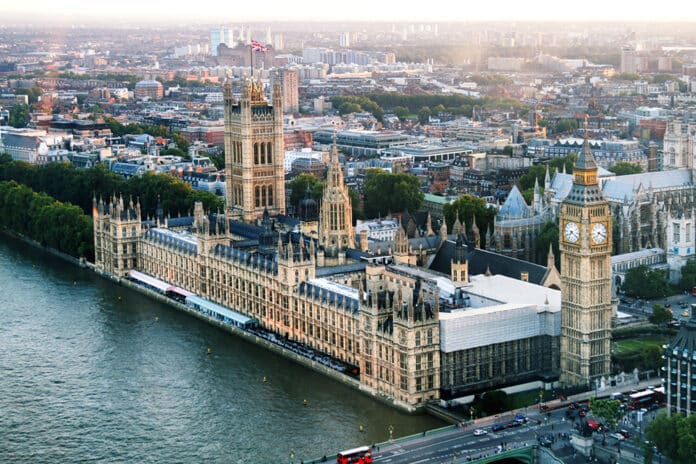The government has announced new laws which will allow it to set minimum levels of service which must be met during strikes to ensure the safety of the public and their access to public services.
The government says it is introducing this legislation to ensure that striking workers don’t put the public’s lives at risk and prevent people getting to work, accessing healthcare, and safely going about their daily lives.
In response, the RMT says it is an attack on human rights and civil liberties, which it will oppose in the courts, Parliament and the workplace.
The government says it will first consult on minimum service levels for fire, ambulance, and rail services, recognising the severe disruption that the public faces when these services are impacted by strikes, especially the immediate risk to public safety when blue light services are disrupted.
The government says it hopes to not have to use these powers for other sectors included in the Bill, such as education, other transport services, border security, other health services and nuclear decommissioning.
Business Secretary Grant Shapps said: “The first job of any government is to keep the public safe. Because whilst we absolutely believe in the ability to strike, we are duty-bound to protect the lives and livelihoods of the British people.
“I am introducing a bill that will give government the power to ensure that vital public services will have to maintain a basic function, by delivering minimum safety levels ensuring that lives and livelihoods are not lost.
“We do not want to have to use this legislation unless we have to, but we must ensure the safety of the British public.”
In a release, the government says this principle is already recognised in many countries across the world, such as Italy and Spain, where systems for applying minimum levels during strikes are in place for services the public depend on.
As is the case currently a union will lose its legal protection from damages if it does not comply with the obligations set for them within the legislation.
Today’s reforms come as government ministers are meeting trade unions to discuss fair and affordable public sector pay settlements for 2023 to 2024.
RMT general secretary Mick Lynch said: “This is an attack on human rights and civil liberties which we will oppose in the courts, Parliament and the workplace. “One of the most important things in any democratic society is to have free trade unions.
“This law could make effective strike action illegal, and workers may be sacked for exercising their right to withdraw their labour.
“The only reason this draconian legislation is being introduced is because the government have lost the argument and want to punish workers for having the temerity to demand decent pay and working conditions.
“The government’s own impact assessment of minimum service levels shows it wouldn’t work. They would be better off coming to a negotiated settlement with unions through dialogue.”
Responding to the Minimum Service Levels bill introduction to Parliament, a spokesperson for Rail Partners said: “Minimum Service Levels for transport is not a new concept and is well established in countries across Europe.
“It is an approach which seeks to appropriately balance and protect the right to strike and the rights of others to get to work or school and access necessary healthcare.
“Now Government has published the bill, the next step is to develop the clear guidelines under which industry and unions will need to operate.”
Photo credit: Rail Partners







































 0113 2082620
0113 2082620 info@railbusinessdaily.com
info@railbusinessdaily.com 15 Mariner Court, Wakefield WF4 3FL
15 Mariner Court, Wakefield WF4 3FL

